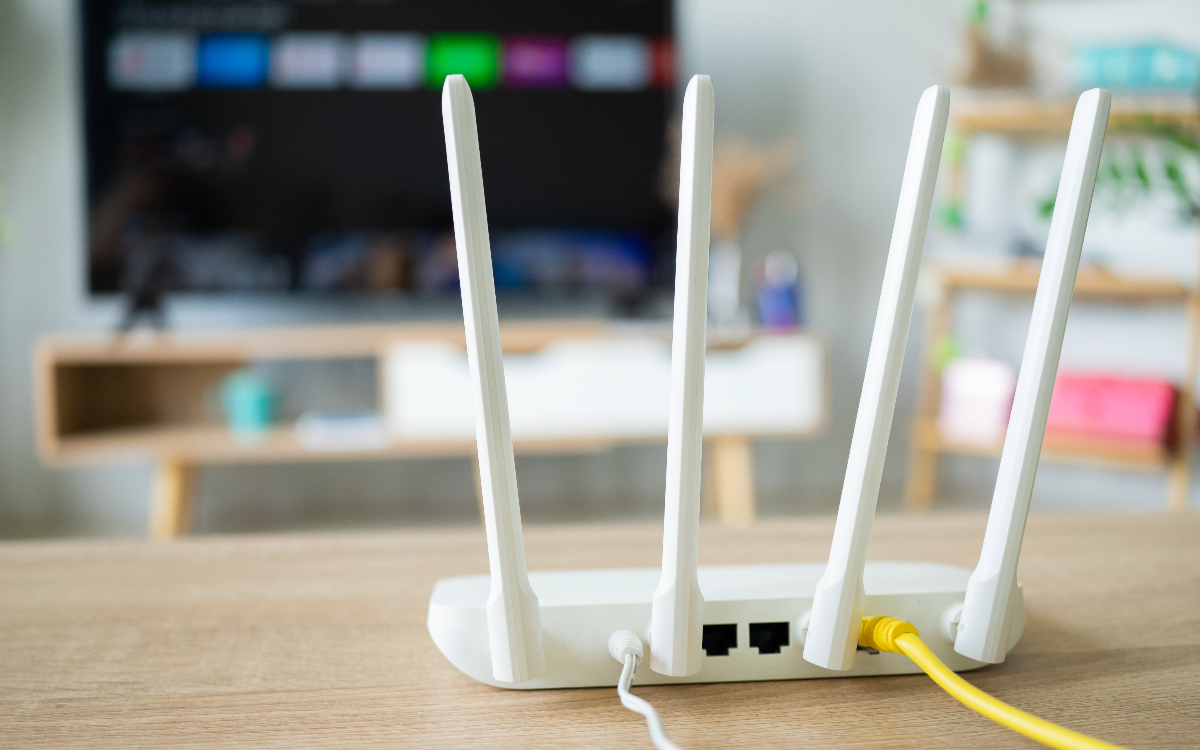The demand for reliable, secure, and high-performing wireless networks has never been more pressing for businesses. With an estimated 5.18 billion internet users globally, customers and staff alike benefit from easy internet access. Yet, as organizations rely on a range of connected devices and cloud-based applications, the limits of traditional Wi-Fi setups become apparent. That’s where managed Wi-Fi can fill the gap. It can provide advanced security measures, improve performance, and scalability to meet the changing needs of any modern business.
Table of Contents
What Is Managed Wi-Fi?
Managed Wi-Fi is a service that lets businesses outsource the creation, setup, and upkeep of their wireless networks to an external provider. They’re responsible for network design, equipment installation, regular updates, and security protocols. Additional services may include advanced encryption, intrusion detection systems, and traffic monitoring, which can be customized to business needs.
Basic Wi-Fi vs. Managed Wi-Fi
When Wi-Fi comes to mind, many will think of easy-to-access internet that can be used from most devices. However, not all Wi-Fi technology is made equal, making users and businesses more vulnerable when using a higher-risk setup. It’s crucial for any business to understand the difference between a basic and managed Wi-Fi approach.
Setup and Configuration
Basic: Self-managed, requires manual setup and configuration.
Managed: Handled by a third-party provider, offering professional setup, configuration, and ongoing maintenance.
Security Features
Basic: Basic security protocols such as WPA and WPA2 encryption.
Managed: Advanced security measures, including firewall integration, intrusion detection systems, and multi-factor authentication.
Performance and Scalability
Basic: Manual adjustments are needed for optimization, and it’s less scalable.
Managed: Utilizes intelligent algorithms for performance balancing and offers scalability to grow with your organization.
Cost
Basic: It can have upfront costs but has the potential for higher long-term charges due to maintenance, upgrades, and cybersecurity threats.
Managed: Higher upfront service fees, but often more cost-effective in the long run due to reduced labor costs and enhanced performance.
User Experience
Basic: Basic connectivity with limited insights into network performance unless specialized software is used.
Managed: Provides user-friendly dashboards with real-time network performance and security insights.
How Managed Wi-Fi Enhances User Authentication
One key advantage of Managed Wi-Fi over traditional setups is its stronger focus on user authentication. In basic Wi-Fi networks, users often log in with just a username and password, a method vulnerable to cyberattacks like brute force or phishing. Managed Wi-Fi improves security with multi-factor authentication (MFA) and single sign-on (SSO) features.
By taking that approach, users must pass multiple checks, such as entering a password, receiving a code on their phone, or using fingerprint recognition. This layered security significantly lowers the risk of unauthorized access to a Wi-Fi network. That security can be extended to customers and guests, keeping their online activities safer.
The Role of Traffic Monitoring in Managed Wi-Fi
Traffic monitoring in Managed Wi-Fi involves real-time observation and analysis of data moving across a wireless network. It’s vital for network performance and security, allowing admins to identify bottlenecks, manage bandwidth effectively, and detect any unusual activity. Managed Wi-Fi solutions can also adapt in real-time by continuously tracking data flow. That makes it easier to optimize network performance, ensuring a smooth and reliable user experience.
Beyond oversight, traffic monitoring also helps with compliance, user behavior, and advanced threat detection. For instance, many industries have strict regulations for the transmission and storage of data. Traffic monitoring tools can generate reports to ensure a business remains compliant. Similarly, by studying patterns in user behavior, administrators can address potential issues early on before they become a bigger problem.
Industries That Benefit the Most From Managed Wi-Fi
Managed Wi-Fi isn’t a one-size-fits-all solution; it’s valuable for businesses where network performance, security, and scalability are needed. We’ll highlight some industries that benefit the most from it.
Healthcare
In healthcare settings, network reliability and security are essential. Managed Wi-Fi services ensures that patient data is securely transmitted and accessed only by authorized personnel as mandated by regulations. It also supports the ecosystem of connected medical devices, providing a reliable network system for telemedicine and real-time monitoring.
Retail and Hospitality
For retail and hospitality businesses, customer experience is crucial. It allows these establishments to offer secure guest networks, targeted promotions, and even location-based services. It also provides a framework for safer payments and inventory management.
Education
Educational institutions are increasingly reliant on digital resources for both teaching and administration. Managed Wi-Fi guarentees that students and faculty have reliable access to online materials while helping safeguard against unauthorized access and cyber threats.
Manufacturing
The Internet of Things (IoT) plays a significant role in modern manufacturing. Wi-Fi management supports the seamless operation of connected devices for monitoring and automation, ensuring data is securely and efficiently transmitted across the factory floor.
Financial Services
Given the sensitive nature of financial data, institutions in this sector require a network that offers both robust security and high performance. Managed Wi-Fi meets these needs by providing safer data transmission channels and compliance with industry compliance regulations like PCI DSS and NIST.
Property Management
Wi-Fi management offers centralized network management and remote troubleshooting for property managers overseeing multiple locations or large complexes. That is particularly useful for providing tenant amenities like community Wi-Fi while ensuring secure administrative operations.
Transportation and Logistics
In transportation hubs like airports and seaports or within logistics companies, Managed Wi-Fi services enables real-time tracking and data analytics. That enhances operational efficiency and security, from baggage handling to inventory tracking.
Don’t Underestimate the Value of Managed Wi-Fi
Managed Wi-Fi services are far more than just convenience. It’s a strategic asset that can significantly improve both the security and performance of your wireless network, tailored to fit the unique needs of your business or organization. From advanced authentication features and intrusion detection systems to real-time traffic monitoring, Managed Wi-Fi offers a comprehensive suite of tools to protect your data and enhance user experience.
Is your business dealing with unreliable or unsecure Wi-Fi? Get managed Wi-Fi services with an ITonDemand service package, request a consultation via our contact form or call us at +1 (800) 297-8293




